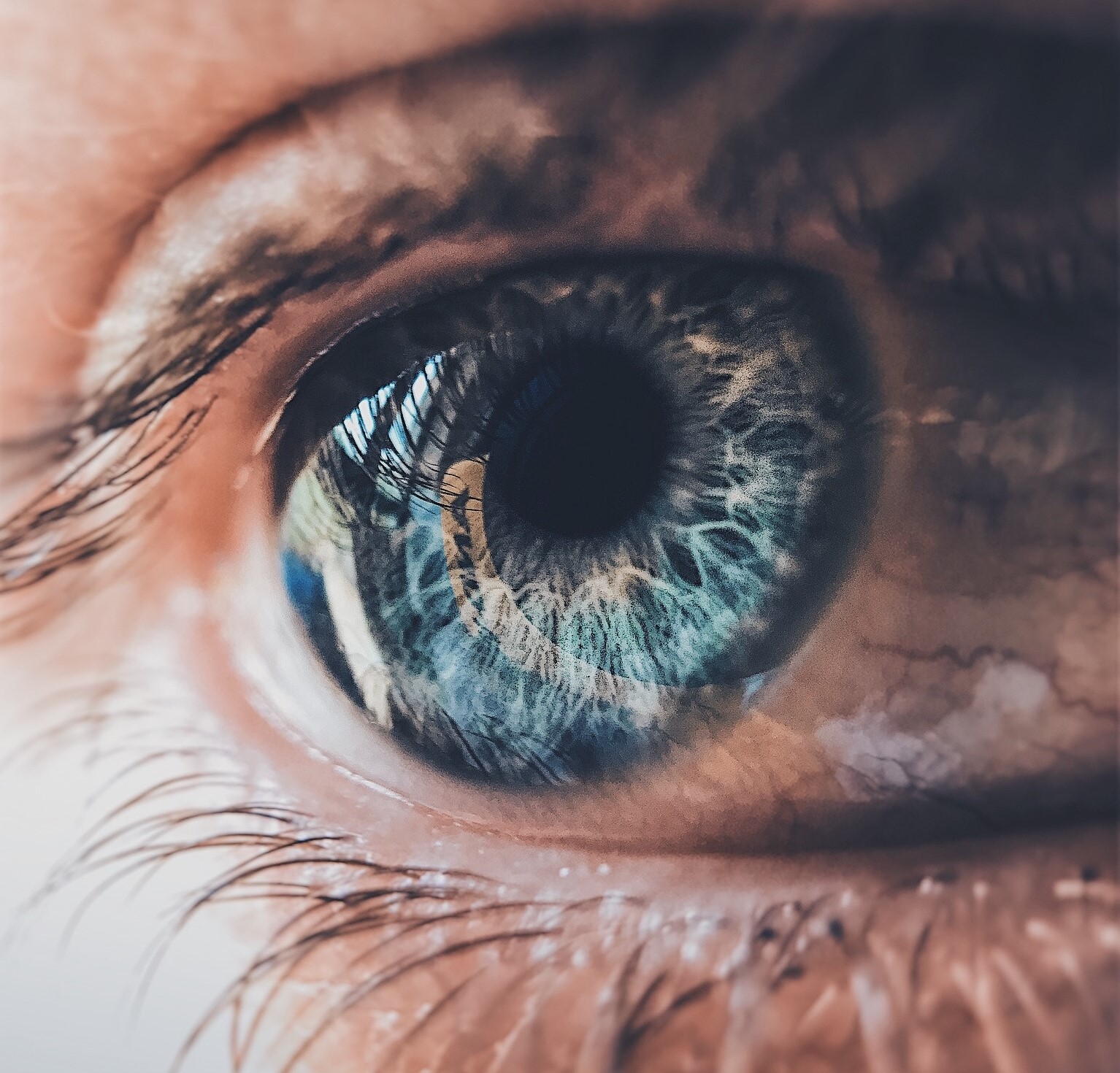AGE-RELATED MACULAR DEGENERATION (ARMD)

The macula is the name given to the area of the retina, or camera film of the eye, and is responsible for your central vision. Your central vision is your sharpest or clearest vision, allowing you to see fine details. Without this sharp central vision, you can’t read, see the expressions on someone else’s face or drive a car.
General symptoms include:
- Visual distortions, for example, straight lines seem bent or wavy.
- Reduced central vision in one or both eyes. This is where faces or objects in your central vision are not clear.
- Your eyes struggle to adapt to reduced light levels, for example entering a dimly lit room or stepping outside into the night.
- You need a brighter light when reading or performing close work.
- Printed words are becoming increasingly blurry
Macular degeneration is a painless and slowly progressive disease that commonly affects people over the age of 60.
There are two different forms of age-related macular degeneration (ARMD): dry and wet.
DRY AGE-RELATED MACULAR DEGENERATION (ARMD)
This is the most common form and accounts for 90 per cent of cases. Small yellow clumps or deposits, known as ‘drusen’, can be seen under the retina. Initially, they don’t interfere significantly with your vision, but over time they may enlarge in size and more may develop.
WET AGE-RELATED MACULAR DEGENERATION (ARMD)
This is the less common form and accounts for approximately 10% of cases. It occurs when new blood vessels grow into areas of dry ARMD. These blood vessels are fragile and leak fluid or bleed, hence the vision loss these cause may be rapid and severe. You may notice that a central area in your vision becomes blurred, called a ‘central scotoma’, or that straight lines, like a door frame, are bent or wavy, called ‘metamorphopsia’.
RISK FACTORS
Risk factors for the development of ARMD include increasing age, family history of ARMD and smoking.
REDUCING RISK
To reduce your risk of developing ARMD or slow down the progression of dry ARMD:
- Stop smoking.
- Eat a diet rich in dark green leafy vegetables (spinach, kale), fruits (blueberries) and vegetables (corn).
- Ensure adequate intake of Omega-rich foods, such as oil-rich fish like salmon or mackerel.
- Control cardiovascular disease risk factors such as blood pressure, cholesterol, diabetes, obesity.
- Exercise regularly.
- Consider macular vitamin supplementation in consultation with your ophthalmologist.
It’s also important to test your central vision regularly using an Amsler grid and to have an annual specialist eye check.
DIET & MACULA DEGENERATION
Eating for Eye health has been recognised by the Macular Disease Foundation of Australia. As a result, they have produced an e-Cookbook of recipes with foods to promote eye health. Download the Macula e-Cookbook here.
MACULA DEGENERATION TREATMENT
Newer treatments for wet ARMD are now available. They work by blocking the signal or molecule, called ‘vascular endothelial growth factor (VEGF)’, which is stimulating the new blood vessels to grow. There are three main anti-VEGF drugs available: Lucentis (Ranibizumab), Eyelea (Alflibercept) and Avastin (Bevacizumab). They are injected into the eye using a very fine needle.
MYOPIC MACULAR DEGENERATION (MMD)
MMD occurs in people who have extreme short-sightedness (myopia) causing similar vision symptoms as ARMD. It tends to progress more slowly, and you may not notice it until it is more severe because your brain tends to adjust to the more dominant eye. The damage occurs over time as the eyeball becomes elongated, and as it stretches it damages the retina as well as the underlying support structures, e.g. the optic nerve.
Depending on your level of myopia MMD can also develop at an earlier age. Not everyone with myopia will develop MMD and often only one eye is affected.
There is currently no complete cure for MMD however there are treatments to assist some of the symptoms and eye conditions associated with it to prevent further vision loss. For example, in MMD, abnormal blood vessels can grow under the retina and leak. This growth is promoted by a protein called vascular endothelial growth factor (VEGF), and anti-VEGF drugs can be given to slow down the growth of these blood vessels.
It’s very important that you see your eye doctor regularly to assess any changes in your vision.
CHECK YOUR MACULAR
The Macular Disease Foundation of Australia has created an easy online quiz to enable you to assess your risk of developing macular degeneration.
- 5 easy questions
- 1 minute to complete
- Check your risk factors instantly
EYE CONDITIONS
MACULAR DEGENERATION IN THE NEWS
Long & short of Wet & Dry Age-Related Macular Degeneration
Age-related macular degeneration (ARMD): The macula truths Age-related macular degeneration (ARMD) is one of these ‘somethings’. It is a disease in wh READ MORE >
5 Common Eye Diseases And Symptoms To Watch For
Common Eye Diseases | Symptoms & Effects You should be aware of the signs and symptoms of the most common eye diseases. If you’re over the age of READ MORE >
5 Facts About Macular Degeneration
Facts About Macular Degeneration In case you didn’t see it (pun intended), this week is Macular Degeneration Awareness Week (21-27 May). This year, th READ MORE >





